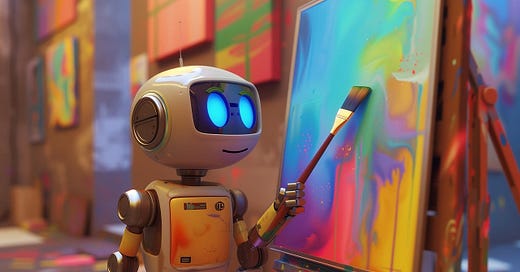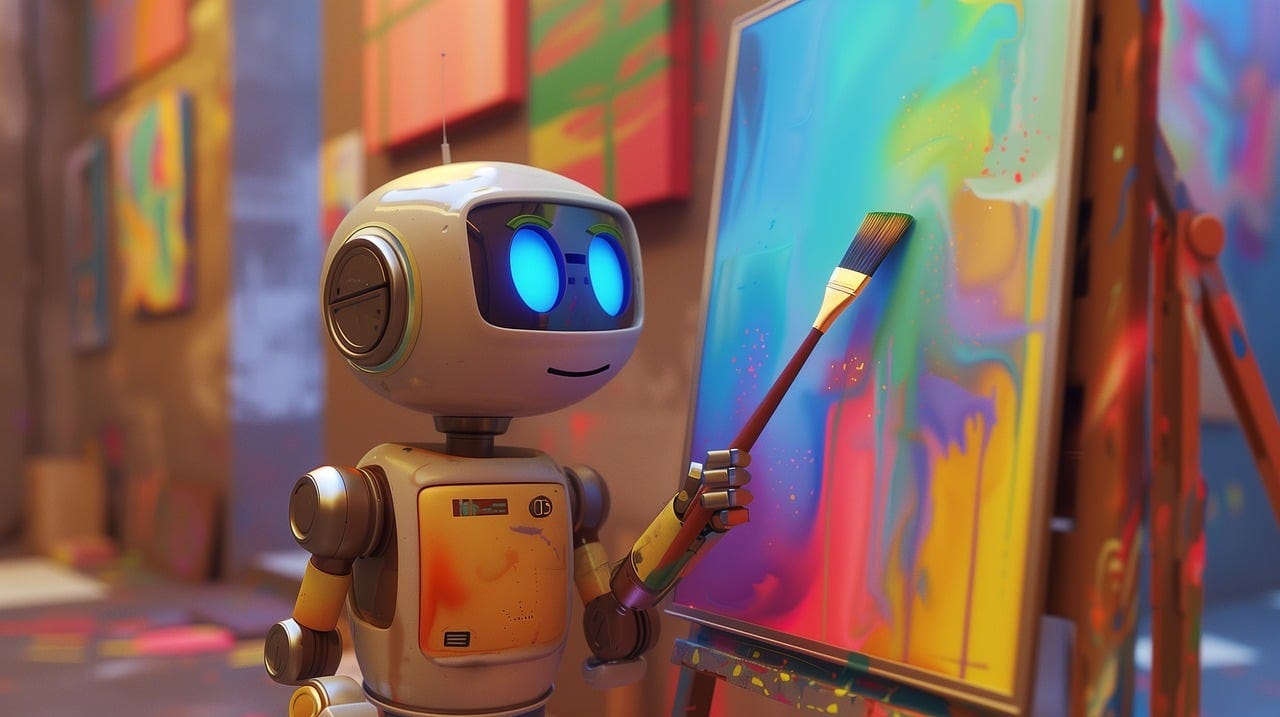Art, Algorithms, and the Uncharted Territories of Creativity
When thinking about modern history and how technology can impact even the ancient task of storytelling, it helps to turn to a few tales that have stood the test of time. Two different scenarios come to mind when I think about this: Mary Shelley’s Frankenstein and the film War Games. At first glance, these might seem like relics of a bygone era—a gothic novel and a Cold War movie—but they still carry lessons that are surprisingly relevant for anyone trying to write a novel today.
In Frankenstein, we’re presented with a story about ambition and the unpredictable nature of creation. Shelley’s tale isn’t just about a creature stitched together from parts; it’s about the consequences of creating something without fully understanding or controlling it. For many writers, this story serves as a reminder that every tool we pick up—every method we adopt in our creative process—carries a responsibility. The caution embedded in Frankenstein’s narrative suggests that while new technologies can offer fresh ideas, they must be used with care. If we’re not mindful, there’s a risk of letting these tools steer our creativity in directions we never intended.
I touched on these ideas in a recent Writer’s Digest article, where I explored how the balance between innovation and responsibility plays out in our modern writing process. That piece was a deeper look at how the lessons from classic tales remind us to use new tools as helpers rather than crutches, ensuring that our unique voice remains at the heart of our storytelling.
One of my favorite movies back in the ‘80s, War Games captures a different kind of lesson. The film, set against the backdrop of early computer culture, shows how a simple game or a playful experiment can quickly spiral into something far more serious. For those who remember its impact, the movie is a vivid reminder that technology can be both exciting and unpredictable. It wasn’t just about the thrill of a computer challenge; it was a wake-up call about the power that lies within our digital creations. In the world of writing, this serves as an analogy for the way digital tools can disrupt the creative process. They can inject energy and unexpected twists into our work, but they can also lead us into complicated territory if we’re not careful.
These stories, while set in very different contexts, share an underlying message: innovation comes with its own set of risks and rewards. And that balance is something every writer grappling with modern technology can understand. The tools available today—like AI-driven writing assistants—promise to help overcome writer’s block, suggest new directions for a plot, or even fine-tune a character’s voice. Yet, there’s always a question of control. Does relying on these tools mean sacrificing the authenticity of your work? Is there a chance that in trying to be efficient, you might lose the unique quirks that make your writing distinctly yours? If you can create a story simply by pushing a button, are you actually creating a story?
This is where a more grounded approach comes in. There’s no need to worry about creating a Frankenstein’s monster of your own making if you use technology wisely. For instance, at Next Chapters we take a straightforward approach. We work with writers who want to keep their creative spirit intact while using digital tools as a helping hand. It isn’t about letting a computer take over the storytelling; it’s about getting just enough support to move past a block or spark a new idea on a tough day. We like to think of it as a practical way to mix traditional storytelling with a little modern magic—using technology as one of many tools in your writer’s toolkit.
For everyday people who write, the idea is simple: technology should work for you, not replace you. The excitement of a film like War Games isn’t about glorifying the power of machines; it’s about recognizing that with the right balance, even seemingly playful tools can help open up new ways of thinking. At the same time, the reminder from Frankenstein is that every innovation should be approached with a clear sense of purpose and responsibility. When you sit down to write a chapter or a scene, it’s worth taking a moment to decide what role you want technology to play. Is it a silent partner that offers suggestions, or is it a loud voice that risks drowning out your own?
In a world where technology often feels overwhelming, it can be refreshing to take a step back and remember that writing is still a very human activity. Whether you’re jotting down ideas on a napkin, typing away on a keyboard, or even using a digital tool to help arrange your thoughts, the core of storytelling remains unchanged. It’s about communicating experiences, feelings, and dreams in a way that resonates with others. The modern tools available today simply offer new ways to get those ideas out into the world, much like how a camera or a typewriter once did.
When you blend the lessons of Frankenstein and War Games with the practical tools of today, you begin to see that writing doesn’t have to be an either-or battle between tradition and technology. Instead, it’s about finding a comfortable middle ground where you can benefit from digital advances without compromising your voice. You’re not selling out or losing control; you’re simply adapting to new circumstances while keeping the essence of your creativity intact.
For many writers, the journey of crafting a novel can be daunting. There are moments of self-doubt, nights when the page remains stubbornly blank, and times when every idea feels like it’s been done before. It’s in these moments that a little help can make all the difference. Tools like the ones we use at Next Chapters are here to offer that help—not by taking over the process, but by nudging you in the right direction when you need it most. It’s a practical, down-to-earth solution that respects both the craft of writing and the unpredictable nature of creativity.
Ultimately, the goal is to keep the writer in charge. The stories we tell, the characters we create, and the worlds we build are all deeply personal endeavors. Even as we use technology to ease the process, the heart of any good story remains firmly human. The challenge is to harness the benefits of modern tools while staying true to the individual voice that made you want to write in the first place.
In the end, blending the cautionary notes from Frankenstein with the innovative spark of War Games can offer a roadmap for writers in the digital age. It’s not about choosing between the old and the new, but about learning from both. By doing so, you can navigate the challenges of modern storytelling with confidence and clarity—ensuring that every new chapter is a genuine reflection of who you are, and a step forward in your creative journey.




